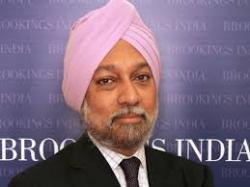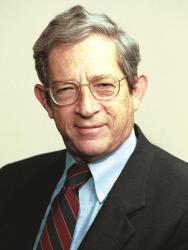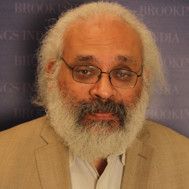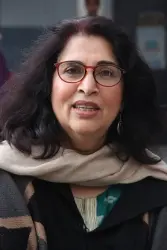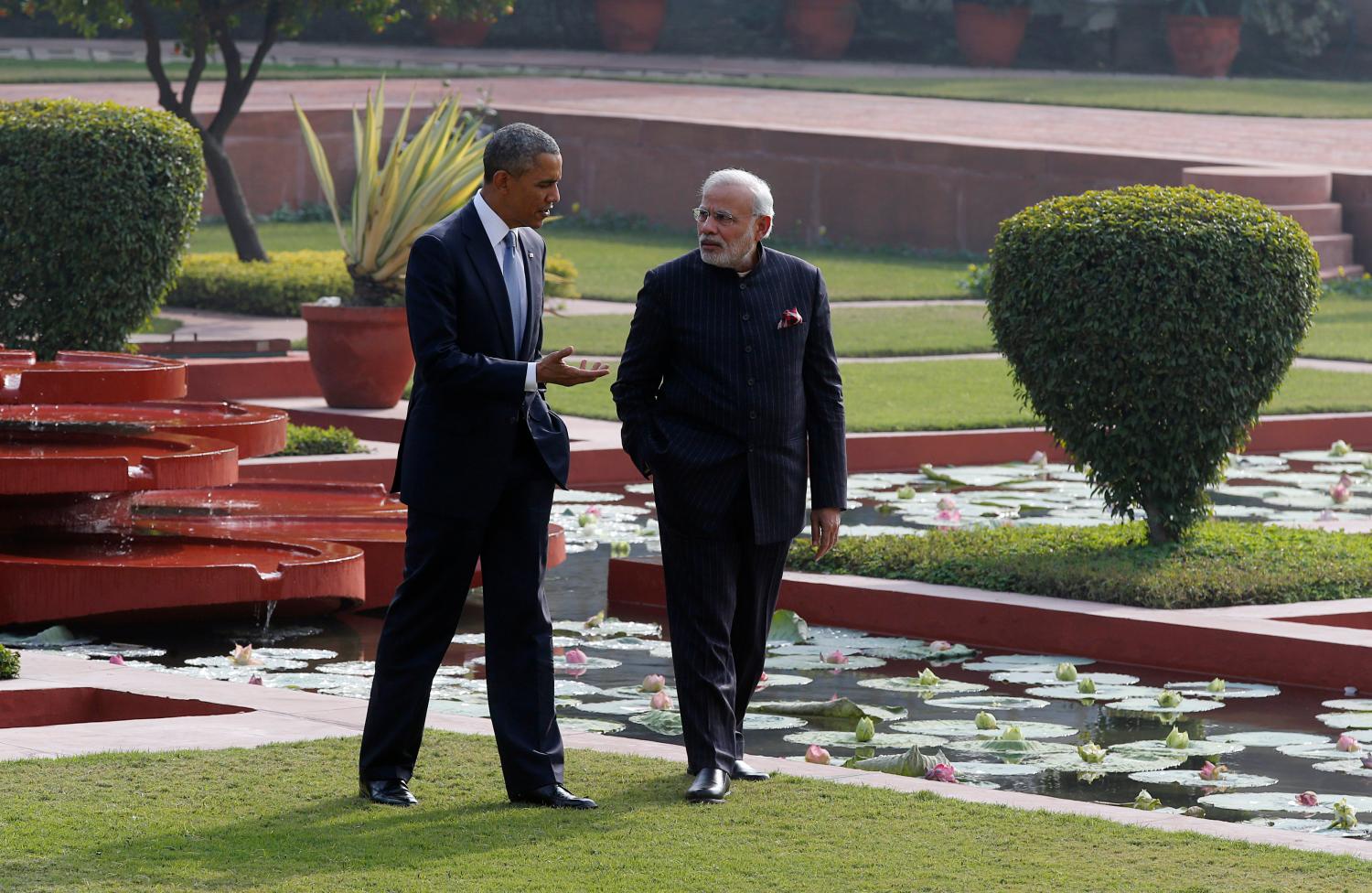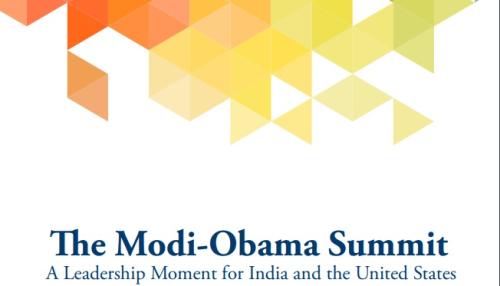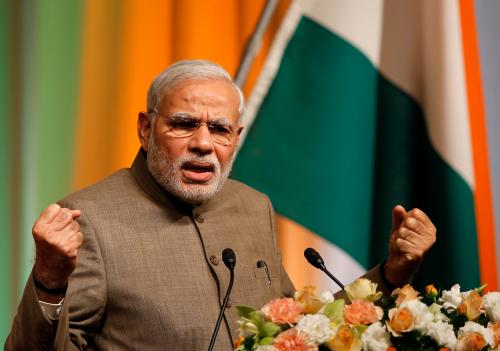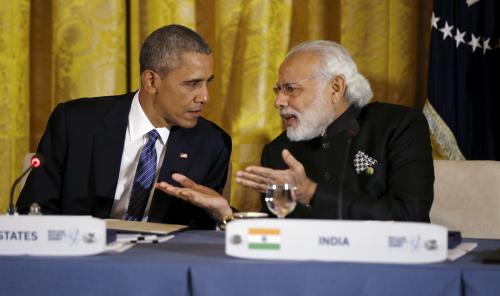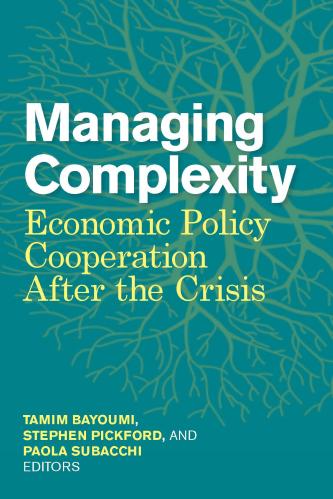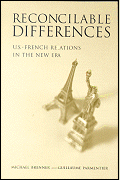Content from the Brookings Institution India Center is now archived. After seven years of an impactful partnership, as of September 11, 2020, Brookings India is now the Centre for Social and Economic Progress, an independent public policy institution based in India.
Following their first summit in September 2014, Prime Minister Narendra Modi, in an unprecedented gesture, invited President Barack Obama to be the chief guest at India’s 66th Republic Day, the first time an American president has been invited in this capacity. With his acceptance of this invitation, President Obama will become the first U.S. president to visit India twice during his time in office. This second summit within six months offers a further opportunity to deepen the India-U.S. relationship.
As the two leaders prepare to meet in New Delhi on January 25-27, the Brookings India Center in New Delhi and The India Project in Washington, D.C. has produced a briefing book consisting of 16 memos written by a wide array of Brookings experts. The memos are divided into three sections: the introduction offers an overview of the current state of India-U.S. relations; the next section presents “scene-setter” memos that provide insights into crucial geopolitical and geoeconomic issues between the two countries; and the third section covers a range of issues on which India and the United States are—or need to be—cooperating, including foreign, security, economic, energy, urban and social policies.
This briefing book is a follow-up to the set of memos written for the September 2014 Modi-Obama meeting: The Modi-Obama Summit: A Leadership Moment for India and the United States.
Introduction
Building Up the India-U.S. Relationship
Vikram Mehta and W.P.S. Sidhu note that Prime Minister Modi and President Obama were successful in providing momentum to the India-U.S. relationship with their first summit. They state that the New Delhi summit is an ideal opportunity to build on the joint vision outlined during the previous summit, but add that ultimately the success of the summit will be judged by whether or not the two countries deliver on the promises made. Read more »
Geopolitics & Geoeconomics
India and Its South Asian Neighbors: Where Does the United States Fit In?
Teresita Schaffer writes that President Obama’s Republic Day visit is an opportunity to put the challenges posed by Pakistan and Afghanistan into the larger picture of India’s regional and global leadership, and to reflect together on how India and the United States can pursue the interests they share in South Asia. Read more »
Risky Business: The United States Turns Back to the Middle East
Tamara Cofman Wittes writes that President Obama’s new commitment to the Middle East is fraught with uncertainties that are already provoking anxiety, both in the United States and in the region itself. She observes that America’s Middle East allies are concerned about the depth of Washington’s commitment to their concerns and the restoration of regional stability. Read more »
The U.S.-India Relationship and China
Tanvi Madan considers the American and Indian relationships with China, the concerns they share vis-à-vis that country, how they see each other’s relations with Beijing, and the impact China has had on the India-U.S. relationship. She also offers recommendations for India and United States on how to deal with this factor and actor shaping their relations. Read more »
China’s Economic Challenges: Implications for India and the United States
David Dollar discusses China’s current economic challenges and the reforms necessary to overcome them. He writes that India and the United States have a mutual interest in encouraging China to follow through on economic reforms, and identifies key areas for cooperation. Read more »
China’s Domestic Dynamics: Implications for India and the United States
Cheng Li traces Chinese President Xi Jinping’s consolidation of power and describes the resulting changes in China’s domestic politics. He writes that the United States and India must keep these domestic dynamics in China and that country’s concern about containment in mind. Read more »
India-U.S. Relationship: From Promise to Practice
Economic Ties: A Window of Opportunity for Deeper Engagement
Eswar Prasad observes that India and the United States share a wide array of economic interests which provide a good foundation for building strong bilateral relations. He proposes measures and reforms that would enable the countries to strengthen these ties. Read more »
INtellectual Property Rights: Signs of Convergence
Subir Gokarn notes that India and the United States have made considerable progress on the issue of intellectual property rights since the Modi -Obama Summit in September. He recommends that for effective cooperation to continue in the future, it is vital that the countries find an approach that reconciles both private and public interests in the two countries. Read more »
Strengthening India-U.S. Relations through Higher Education
Shamika Ravi states that it makes economic and strategic sense for India and the United States to strengthen ties in the higher education sector. She identifies critical areas for cooperation, including financing of higher education, curriculum design and teaching quality. Read more »
Primary Education in India: Progress and Challenges
Urvashi Sahni writes that issues like quality of learning and teacher accountability impede the progress India has made in primary school enrollment. She writes that India and the United States share several concerns about education and suggests the two countries can achieve better learning outcomes if they pool their experience and resources – both intellectual and economic. Read more »
Enhancing U.S.-India Defense Cooperation
Stephen Cohen and Michael O’Hanlon write that the Obama -Modi joint statement in September signals an emerging common strategic vision between India and the United States. They recommend steps leading up to and beyond the upcoming Obama visit that can strengthen U.S.-India defense ties as well as the quality of defense policymaking in each state. Read more »
Strengthening Counterterrorism Cooperation Against Growing Turmoil
Bruce Riedel explains that the multiple massacres in Pakistan and the transition in Afghanistan challenge the counterterrorism infrastructures built over the last couple of decades. He emphasizes that it is essential Obama and Modi reaffirm their commitment to closer counterterrorism and intelligence cooperation. Read more »
Time to Act on U.S.-India Energy Cooperation
Charles Ebinger and Vikram Mehta examine the opportunities for U.S.-India cooperation in the energy sector. They write that India and the United States together can make tremendous strides in renewables development along with efficient management of fossil fuels and help bring electricity to nearly 300 million people. Read more »
Operationalizing U.S.-India Civil Nuclear Cooperation
Robert Einhorn and W.P.S. Sidhu assess current impasse in U.S.-India nuclear energy cooperation. They argue that Obama and Modi must take greater measures to resolve lingering issues surrounding liability and tracking of nuclear material. Read more »
India and Climate Change: Reversing the Development-Climate Nexus
Rahul Tongia discusses India’s position in global climate negotiations. He also comments on the status of India’s renewable energy projects and whether a second climate deal with the United States similar to the U.S.-China deal is feasible. Read more »
Delivering on the Promise of India’s Smart Cities
Amy Liu and Rob Puentes write that the United States and India have an opportunity to make their partnership on the three Indian cities (Ajmer, Vishakhapatnam and Allahabad) a model for smart city development. They further recommend five principles that can serve as a framework for a U.S.-India partnership on smart cities. Read more »
The Brookings Institution is committed to quality, independence, and impact.
We are supported by a diverse array of funders. In line with our values and policies, each Brookings publication represents the sole views of its author(s).
